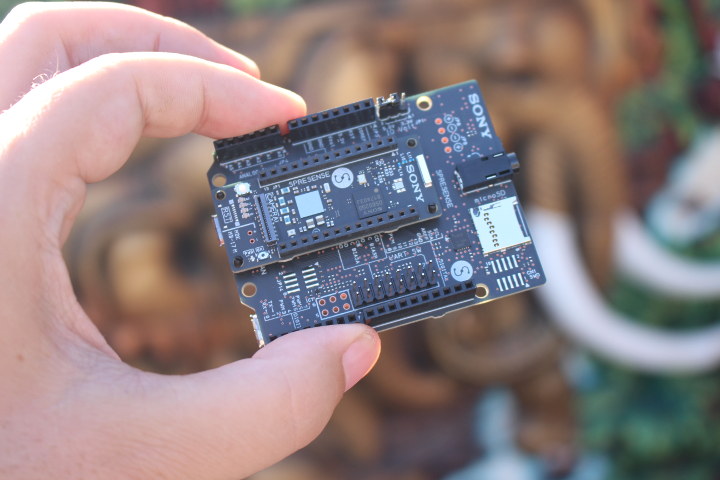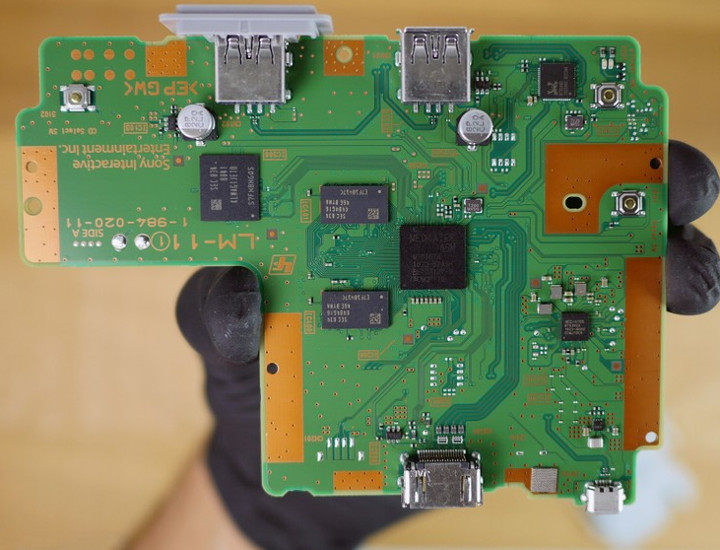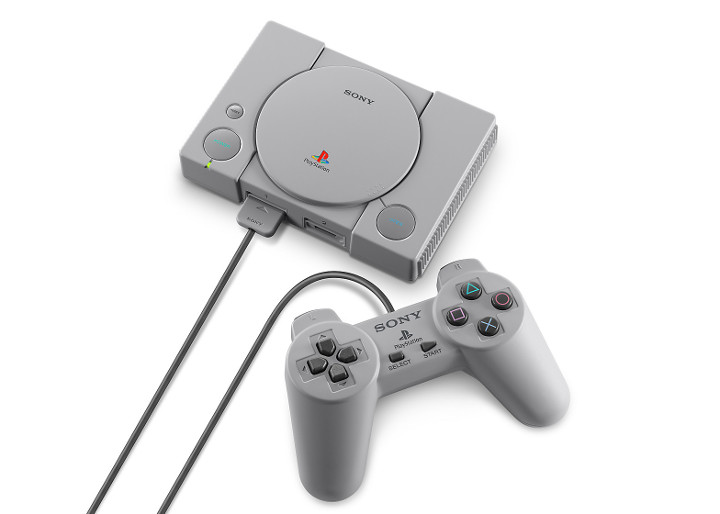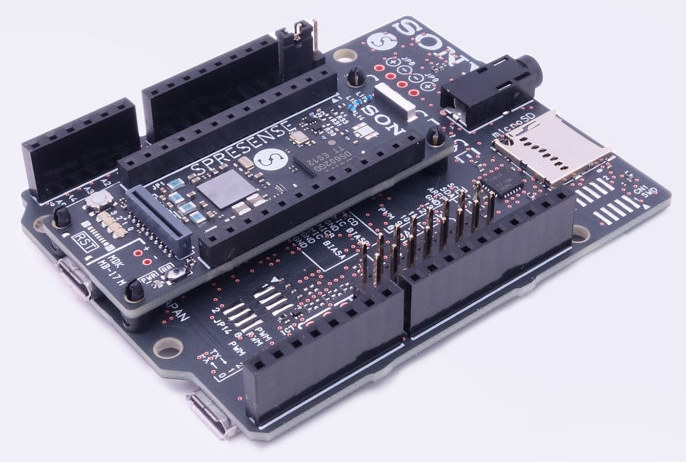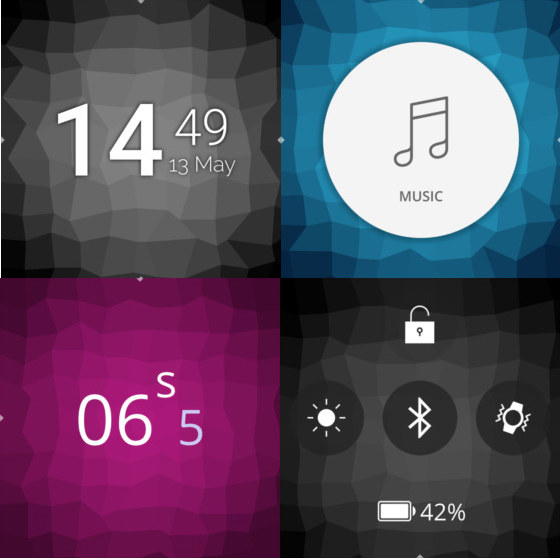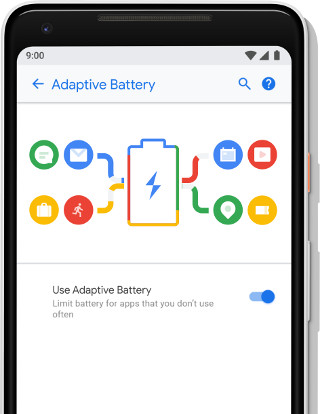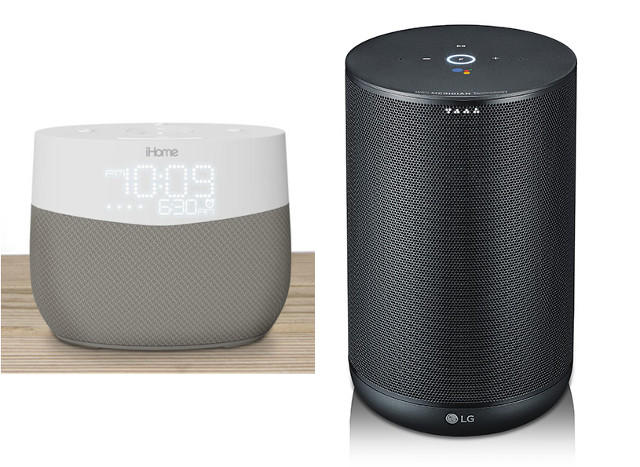Sony Spresense Arduino compatible board with audio and global navigation satellite systems (GNSS) support and its extension board launched in Japan this summer. The company has now expanded markets, and is offering the boards in the United States and Europe as well. They also tasked an agency to send samples to various reviewers, and I got selected to receive one as well. I’ll start the review by checking out the hardware, shortly discuss software development options, and report my experience with Spresense SDK. Sony Spresense Unboxing I received two packages… … one the main board, and the other for the extension board. The main board package only comes with CXD5602PWBMAIN1 board and an information sheet. The top of the board includes a reset button, four user LEDs, a power LED, a boot recovery button, the camera interface, Sony CXD5247 power management and audio analog interface chip (Black on the photo below, […]
Sony PlayStation Classic Teardown Reveals MediaTek MT8167A Processor
Miniature versions of popular game consoles from earlier decades have been all the rage recently, but they all have one thing in common: the inability to add games by default. But eventually, people find ways. For example, when it was found Nintendo NES Classic Mini was found to be powered by an Allwinner R16 processor, enthusiasts found ways to run RetroArch on the device with some efforts. One of the latest announcement was Sony PlayStation Classic, and as reviewers got hold of early sample of the miniature gaming console, it got torn down by HDBlog Italia. That means we now have a good idea of the technical specifications of the console: SoC – MediaTek MT8167A quad core Arm Cortex-A35 processor @ 1.5 GHz with PowerVR GE8300 GPU System Memory – 1GB DDR3-1866 (Samsung K4B4G1646E-BYMA) Storage – 16GB eMMC 5.1 flash (Samsung KLMAG1JETD-B041) Video Output – HDMI port up to 720p […]
Sony PlayStation Classic To Launch for $99.99 in December
Nintendo started to offer smaller replica of their older popular games consoles with Nintendo NES Classic Edition in 2016, followed by Nintendo SNES Classic Edition in 2017. Both devices came with recent interfaces like HDMI, a limited (and fixed) number of games, but being powered by Allwinner R16 SoC they soon became hackable. Both game consoles also became very popular selling in millions despite the underwhelming hardware, and limited games. Another company that has been doing game console for many year is Sony, and they must have liked Nintendo’s idea and sales numbers, as they’ve just unveiled Sony PlayStation Classic, a smaller replica of the original PlayStation with a limited number of games, and modern interfaces such as HDMI and USB… Sony PlayStation Classic specifications have not been fully disclosed but we can see two USB ports for the game controllers, an HDMI output port, and power, open, and reset […]
Sony SPRESENSE Arduino Compatible GNSS + Audio IoT Board To Sell for $50 (in Japan)
Last year, we covered Sony Spritzer, an Arduino compatible with a Sony hexa-core Arm Cortex-M4F micro-controller, a built-in GNSS receiver, and an audio codec. The product page for this product is now gone, but it appears Sony only renamed it to SPRESENSE, made some design modifications, and is ready to launch the main board for 5,500 JPY (~$50), and the extension board for an extra 3,500 JPY ($32) on July 31, 2018. Sony SPRESENSE main board (CXD5602PWBMAIN1) specifications: MCU – Sony CXD5602 ARM Cortex-M4F ×6 micro-controller clocked at up to 156 MHz with 1.5MB SRAM Storage – 8MB Flash Memory GNSS – GPS & GLONASS Audio – 3.5mm audio jack Expansion I/Os Digital I/O Pins – GPIO, SPI, I2C, UART, PWM, I2S Analog Pins – 2ch (0.7V range) Camera interface USB – 1x micro USB port for programming and power Power Supply – 5V via micro USB port Dimensions – […]
AsteroidOS 1.0 Released – An Open Source Linux OS for Wear OS Smartwatches
We first discovered AsteroidOS, a Linux based open source operating system working on some Android Wear (now Wear OS by Google) smartwatches, in early 2016 while looking at FOSDEM 2016 schedule. The project and community have since grown to support more watches, and a company even tried to launch an AsteroidOS smartwatch (sadly unsuccessfully), but development kept going, and now the very first stable release is out with AsteroidOS 1.0. Some of the highlights of the release: AsteroidOS 1.0 features and apps: phone notifications, an agenda, an alarm clock, a calculator, a music remote control, settings customizations, a stopwatch, a timer, and a weather forecast app. Bluetooth Low Energy (BLE) sync with Android phones using AsteroidOSSync app. Supported hardware LG G Watch, LG G Watch Urbane, LG G Watch R Asus Zenwatch 1, Asus Zenwatch 2, Asus Zenwatch 3 Sony Smartwatch 3 Software emulator for testing and development. Community supported […]
Android P Beta Released. What’s New?
Last March, Google released Android P developer preview with new features such as indoor positioning with WiFi RTT, support for display notch, HDR VP9, HEIF image compression, a new API to access two or more camera simultaneously and so on. Google I/O 2018 has just gotten started, and the company announced the release of Android P beta with yet more features, and support for phones from more manufacturers. Some of the most notable features include: Adaptive Battery uses machine learning to prioritize access to system resources for a user’s most commonly run apps, and places each app in four “buckets” ranked from “active” to “rare”. Apps will change buckets over time, and apps not in the “active” bucket will have restrictions for jobs, alarms, network and high-priority Firebase Cloud Messages. App Actions will also use machine learning to show actions for specific apps depending on context. For example highlighting “Taylor Swift” […]
Android Things is Finally Getting into Products: Smart Speakers, Smart Displays, and More
Android Things was first introduced as Brillo in October 2015, before being renamed to Android Things the following year when a developer preview was released with support for Raspberry Pi 3, as well as Intel and NXP development boards. But if you can’t remember the last time you’ve purchased a device running Android Things that’s normal, because so far, there was none. Google announced this is going to change as the first set of Android Things products have been announced at CES 2018. The first category of devices to run Android Things will be Google Assistant enabled smart speakers with the launch of products such as iHome iGV1 and LG ThinQ WK7. ODM partners have also created full speaker reference designs based on certified Android Things and Cast System-on-Modules (SoMs) powered by Rockchip RK3229, Mediatek MT8516, or based on Qualcomm SD212 Home Hub Platform. NXP i.MX 8M solutions are also […]
Google Assistant News – AIY Voice Kit For Sale, Offline Support, 3rd Party Smart Speakers Announced
There’s been a lot of development related to Google Assistant in the last few days. First, Google provided an update for AIY Projects, with their AIY Projects Voice Kit now available for pre-order on Micro Center for $35 including a Raspberry Pi 3 board, making the kit virtually free, although you may also purchase it. Note that Micro Center blocks traffic originating from some countries, so I had to use Zend2 to access the site. [Update 10/09/2017: You can also get it from Seeed Studio for worldwide shipping] Google also announced the Speech Commands Dataset with 65,000 one-second long utterances of 30 short words, which they are in the process of integrating with the next release of the Voice Kit, and will allow the devices to respond to voice commands without the need for an Internet connection. So if you lose your Internet connection, or want to isolate your Voice […]


